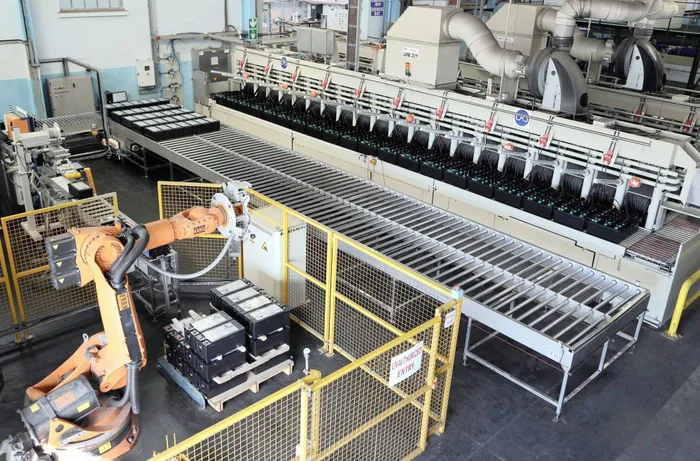Adverse data knocks SA mining stocks

Photo: Simphiwe Mbokazi Photo: Simphiwe Mbokazi
Johannesburg - South Africa’s manufacturing and mining output fell in December, data showed on Thursday, but a recovery is expected this year as business confidence picks up and commodity prices rise.
The negative output saw mining stocks taking a tumble, with Gold Fields leading the charge at 5.53 percent.
Harmony Gold followed, falling 4.51 percent while Royal Bafokeng tumbled 3.54 percent.
Statistics South Africa revealed yesterday that mining output decreased by 1.9percent in December from a year earlier. The sector has posted a year-on-year decline in output every month since October 2015.
In the three months to end-December, seasonally adjusted mining production decreased by 2.7 percent as compared with the previous quarter. For December output, the main contributors to the drop in production were a 15.1 percent drop of platinum group metals. The production of manganese ore and iron ore both increased during the month.
Analysts said the country’s economy was struggling to attract investment, with sentiment dimmed by political uncertainty, weak growth that has hit consumer activity, as well as the looming threat of credit downgrades to junk.
On Wednesday, Deputy President Cyril Ramaphosa said the country would introduce a national minimum wage of R3500 per month in 2018 following protracted negotiations between the government and labour unions. Supporters of a minimum wage said it could stimulate growth as workers would spend more and reduce inequality.
Credit ratings agencies have said agreeing a minimum wage would help the economy hold on to its investment-grade rating by stabilising the labour market and reducing the number of strikes. “The balance we have sought to strike is that it must not be too low, so that it doesn’t affect the lowest-paid workers, but not too high that it leads to massive job losses,” Ramaphosa said.
Read also: Mining, manufacturing slow
He said the national minimum wage, which equates to R20 per hour, would come into effect in May 2018. Businesses that were unable to afford the minimum wage would be permitted to apply for an exemption of up to 12 months. The National Treasury had also thrown its weight behind the policy initiative.
Chief economist at Nedbank, Dennis Dykes, said the agreement was a sign of an improving relationship between labour, business and government, but warned that its implementation needed to be monitored. “It is by no means certain this will lead to job creation. It needs to be watched carefully for any negative effects,” Dykes said. Some unions had asked for a minimum wage of as much as R4500.
South Africa’s mining sector was brought to its knees by a crippling five-month stoppage over pay in 2014, pushing the economy to the brink of a recession. The country’s unemployment rate hit its highest level on record, 27.1percent of the workforce, in the third quarter of 2016, and South Africa remains among the world’s most unequal societies.
- Additional reporting by Reuters.